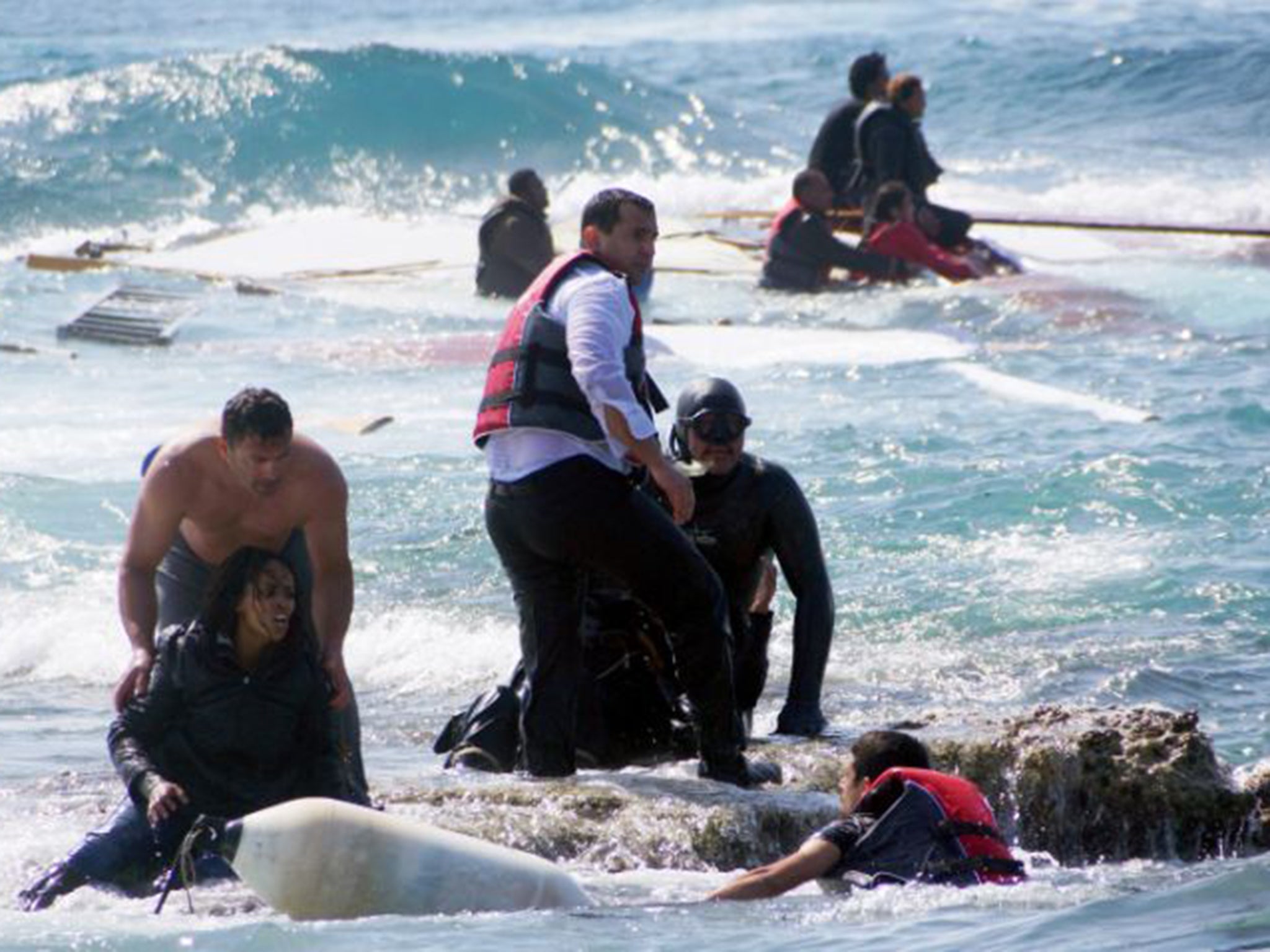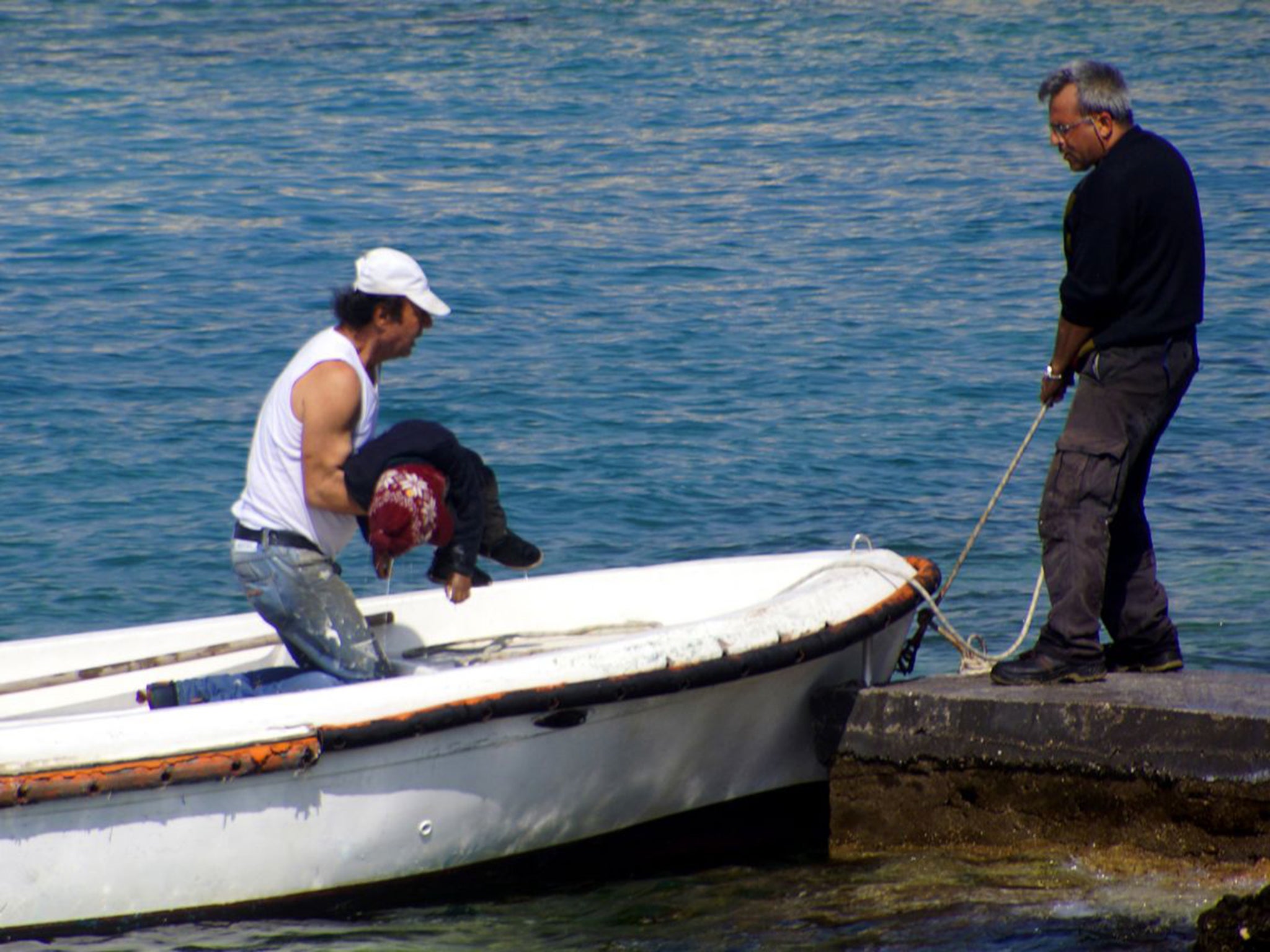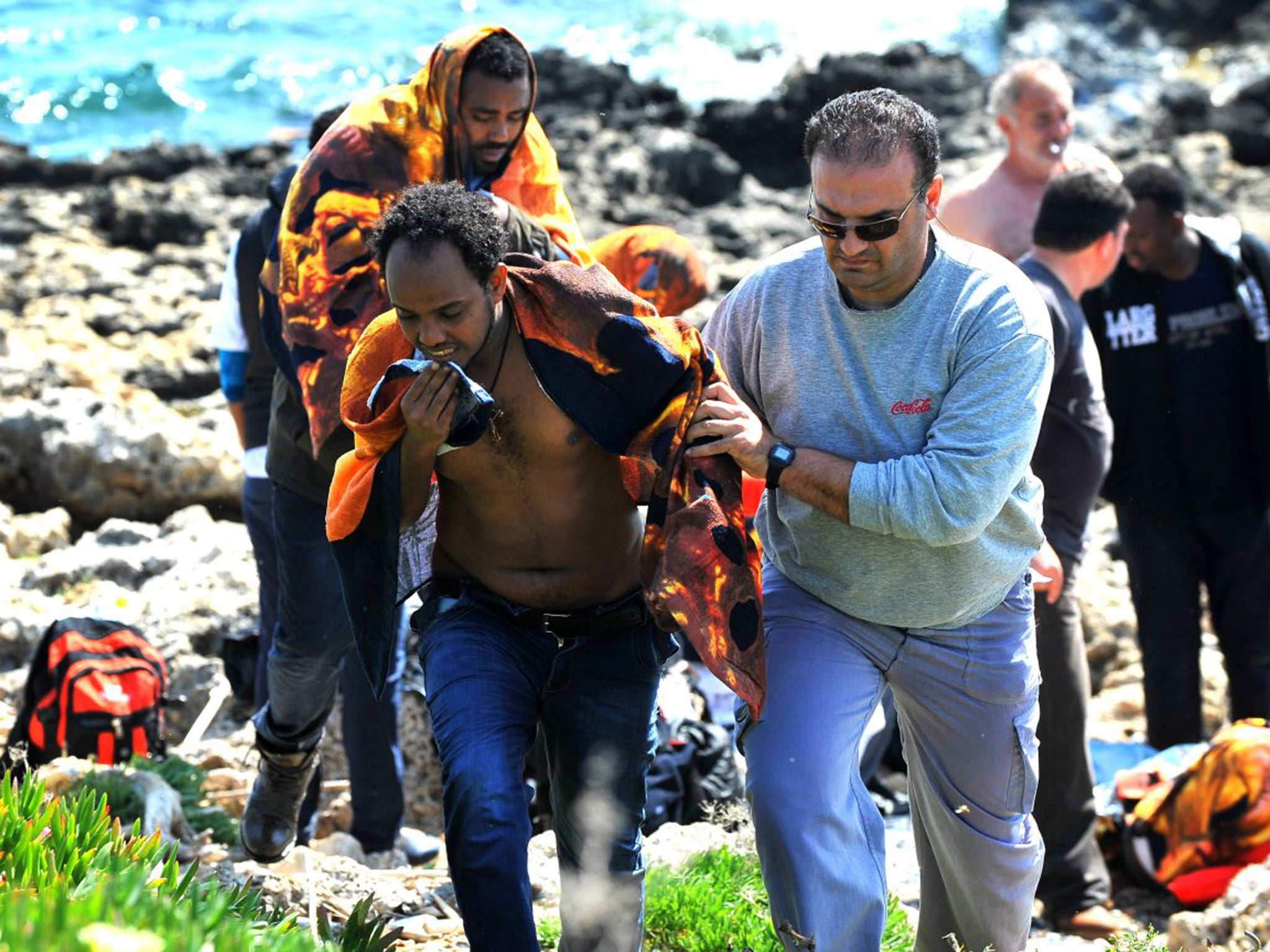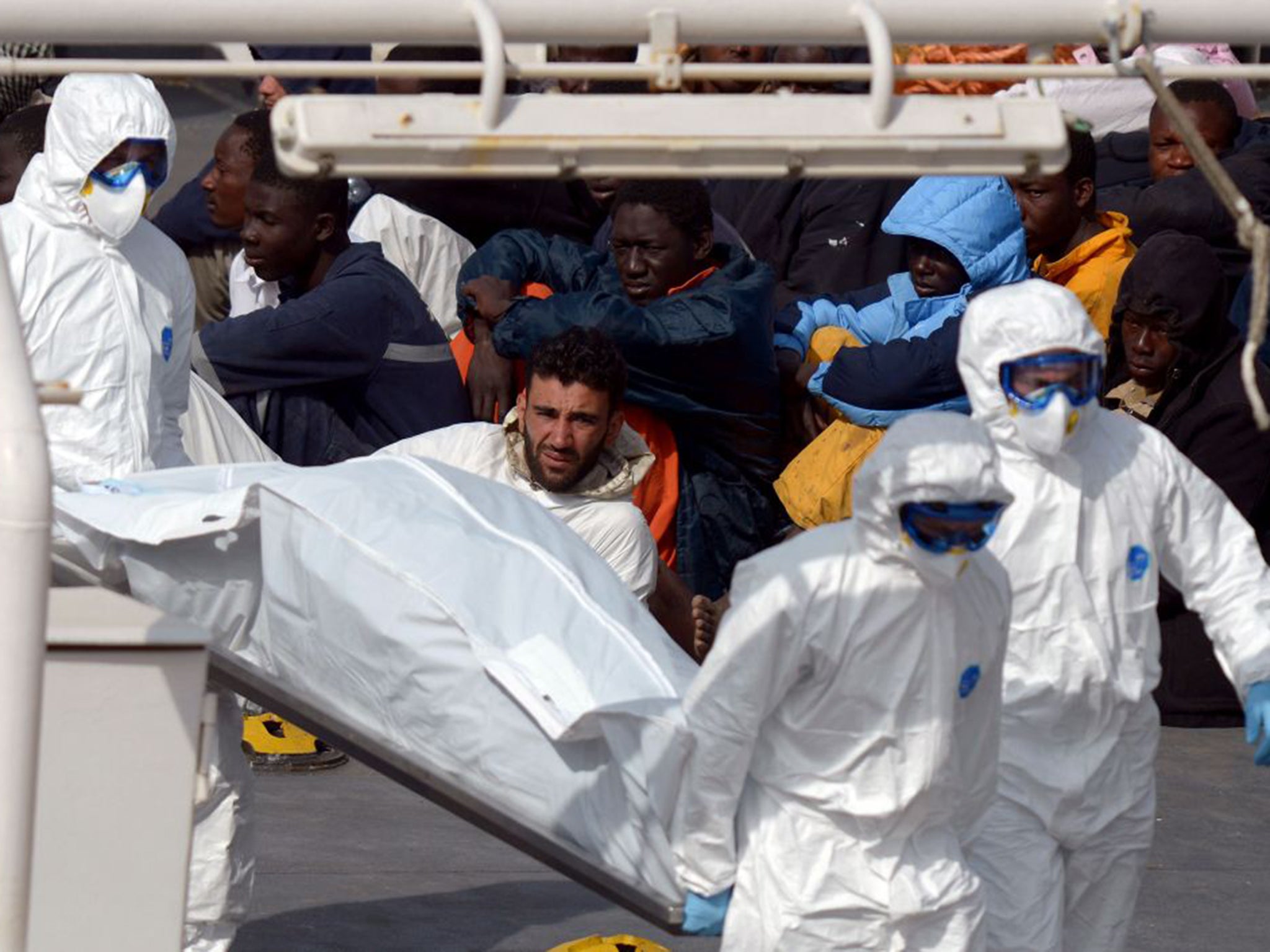Migrant boat disaster: The traffickers that prey on some of the world's most desperate people
The global people smuggling industry is worth an estimated £24bn a year

The Omdurman market north of the Sudanese capital of Khartoum has been a thriving meeting place for sellers and buyers for centuries. Alongside the camels, leather work and spices on offer is another much sought-after commodity these days – illegal passage from some of the worlds most benighted nations to Europe.
The sprawling market is just one of dozens of waypoints that have sprung up across Africa in the past decade to exploit and extract profit from the tide of humanity that flows out of countries from Eritrea and Syria to Ghana and Bangladesh in search of safety, a livelihood and a meaningful life all too often impossible in their native land.
In Omdurman, the people smugglers do a lucrative trade in facilitating the travel of refugees from surrounding east African nations such as Eritrea, Ethiopia and Somalia into the Libyan desert region of Kufra and onwards to Tripoli where they await passage to the Italian island of Lampedusa and the “salvation” of Europe.
It is more than likely that among the 700 feared to have perished in a single night on board a fishing boat off Lampedusa, including many Eritreans, were several who had followed this route. Others will have come from different destinations – Egypt, West Africa and as far afield as Bangladesh.
But all had in common sufficient desperation to take the gamble which, according to the United Nations High Commission on Refugees, last year saw 219,000 people cross the Mediterranean to Europe at a cost of 3,500 lives lost at sea.
It is a growing tide – even before the improved weather brings a summer peak of migrants, some 31,000 made the journey in the first three months of this year with 1,500 deaths. In a situation where the alternative is at best destitution and quite often imprisonment or worse, the grim equation of 1.5 to five per cent of crossings resulting in death seems to be a bet worth taking.

Nearly all will have paid a minimum of $2,000 (£1,340) – and many as much as $10,000 (£6,700) – to a global people smuggling industry worth as much as $36bn (£24bn) a year.
According to UN figures, the largest contingents in the last two years have been those fleeing the barbaric civil war in Syria and one of the world’s most repressive regimes in Eritrea. In the three months of July to September last year alone, some 6,000 Eritreans arrived on Italian shores after fleeing a country where arbitrary arrest and torture is endemic and military conscription is indefinite. It is perhaps an indication of the risks people are willing to take that they will run the gauntlet of the Eritrean government’s policy to shoot to kill those “traitors” leaving the country in search of a livable existence.
The journey undertaken by these individuals from departure points stretching from Dhaka to Bamako – and converging more often than not on the Libyan coast – is about as long, exploited and treacherous as it is possible to find.
According to Europol, some 80 per cent of those arriving illegally in Europe will have done so only after paying smugglers and other criminal groups to facilitate some or all of their passage with services from transportation to false papers to the bribing of border guards.
A system which began in the late 1990s with entrepreneurial crooks or gang masters in countries such as Libya and Tunisia supplying their own citizens for seasonal labour in Italy and Spain has since developed into a vast supply chain - some of it managed by organised crime syndicates but much of it consisting of chains of individuals and acquaintances – across north Africa.

Marginalised Tuareg tribes have cornered the market in smuggling truckloads of migrants across the Sahara and the Sahel, even setting up informal “travel agents” in the border towns of Niger where “customers” can pay $300 a time for a place on a lorry run by armed smugglers who, according to eye-witness accounts, have little compunction about off-loading excess passengers and shooting them in the middle of desert.
Dagmawi Yimer, an Ethiopian film maker who has chronicled the journeys of the migrants, said: “In the desert, there is practically no reliable information, no guide and anything can happen to you: you have to get this into your head.
“You are forced to learn, you make mistakes but each error you make helps you not to repeat it; it is a journey of chance, of destiny, of coincidences; plans are worth little or nothing and everything is unpredictable.”
According to the Swiss-based Global Initiative Against Transnational Organised Crime, each migrant will have paid a minimum of $2,000 for the land journey to reach the Libyan coast.
Many will have engaged in a wretched game of human snakes and ladders sometimes lasting years as they work in each way point from Sudan to Libya to earn the money to pay the next stage of their journey. Others will have entered into long-term debt to be paid for from their new life or by family back home once they make the journey.

As the events of this weekend made all too plain, the most hazardous part of the journey to Europe is the final leg. The people smugglers on the Libyan coast charge between $1,000 and $2,500 to reserve a place on their shoddy vessels for the 113km journey to Lampedusa.
It is a grim industry where demand exceeds supply and the seller does not care greatly if the customer reaches their destination or not. Migrants are marshalled in villages under armed guard away from the coast and shown the boat to take them to Europe – all too often of far better quality than the one they will actually board. They are taken to the boats at night, herded into minibuses from which the seats have been ripped to maximise space.
Thereafter it is a Darwinian struggle for survival where money is the only currency and the smugglers maximise their profit by charging for “extras”. A lifejacket costs $200 and a place in the “first class” section of the boat – the top deck rather than being locked in the hull – is up to $300.
In the twisted morality of this world of wretched exploitation, the traffickers think of everything. Pregnant women must pay $150 for the use of a catheter to counter the belief of some on board their hulks that the urine of a woman in child in poisonous.
Join our commenting forum
Join thought-provoking conversations, follow other Independent readers and see their replies
Comments